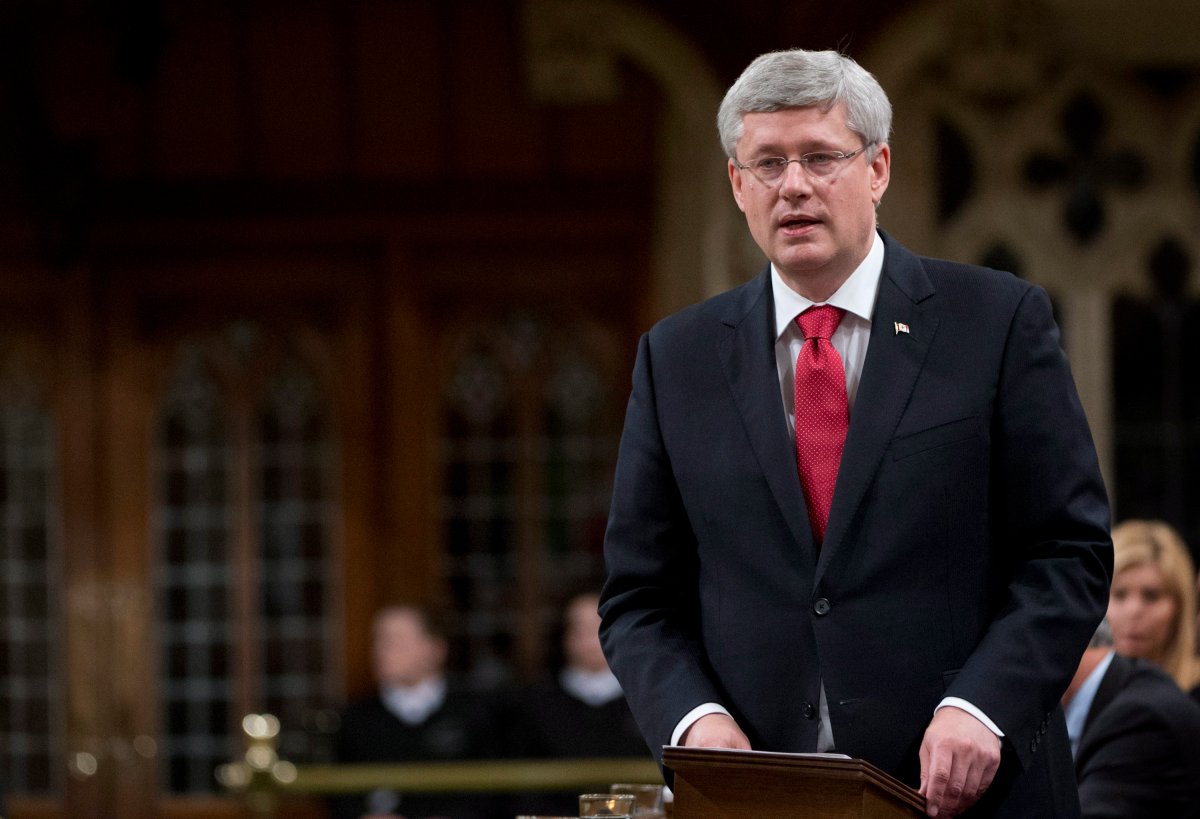OTTAWA – The vote won’t happen until Monday, but both the Liberals and NDP signalled Friday they will oppose the Conservative government’s plan to use airstrikes to battle ISIS for up to six months.

Both parties criticized Prime Minister Stephen Harper’s handling of the volatile situation in Iraq.
Harper outlined the government’s plan on Friday, which includes airstrikes but no combat troops on the ground in Iraq.
He also left the door open to potential action in Syria, if Canada is asked, noting that ISIS has created a “clear and direct threat” to both the region and Canada itself.
Meanwhile, the commander of the Royal Canadian Air Force defended Canada’s fleet of CF-18 fighter jets.
“I am completely confident in the ability of the aircraft and personnel to extend Canadian air power anywhere in the world, such as in support of the current air operations underway in Iraq,” Lt.-Gen. Yvan Blondin said in a statement.
NDP leader Tom Mulcair portrayed the prime minister as failing to answer questions about the 30-day non-combat mission, which ends this weekend.
“He can’t even answer basic questions about the breadth or cost of Canada’s military deployment,” Mulcair told the Commons.
He also questioned Canada’s ability to fight Islamist terrorists, who have taken on various incarnations since 2004.
“The prime minister insists that this mission in Iraq will not be allowed to become a ‘quagmire,’” Mulcair said
“But isn’t that precisely what our American allies have been facing in Iraq for the last ten years?”
Instead, the NDP leader said Canada should “use every diplomatic, humanitarian and financial resource at our disposal” in both Iraq and Syria.
He also questioned why military action is the only choice in Iraq, when it is not even considered elsewhere, such as Darfur, or Congo.
NDP foreign affairs critic Paul Dewar clarified that he’d like to see Canada build refugee camps and provide education, health and basic services in Northern Iraq.
Liberal leader Justin Trudeau accused Harper of using “overheated rhetoric” in his attempt to make the case for airstrikes.
“Unlike the prime minister, Liberals believe Canada can make a more helpful contribution to the international effort to combat (ISIS) than a few aging war planes,” Trudeau said, adding Canada can play a non-combat role in strategic airlift, training or medical support. He later agreed that ISIS poses a direct threat to global security, including Canada.
Trudeau questioned the government’s ability to limit Canada’s role once in combat. He brought up Harper’s support for the 2003 invasion of Iraq – “the world is still dealing with the consequences of that mistake,” he said.
“We know the Iraq fiasco haunts the choices we have to make today. But we cannot make the wrong decision now because the wrong decision was made then,” Trudeau said.
Conservative MP Laurie Hawn, the former parliamentary secretary to the minister of national defence, said he’s not surprised by the NDP’s position. “It’s in their DNA. They’re just not going to support anything…doing what military ultimately has to do,” he said.
But Hawn said he is disappointed in Trudeau’s Liberals.
“I think it’s an indication of frankly their leader’s lack of experience and maturity in international affairs, and I’m hoping that maybe over the weekend his position will mature somewhat, maybe with some guidance from some people in his party,” Hawn said.
The motion is expected to be voted upon on Monday after debate in Parliament.


Comments